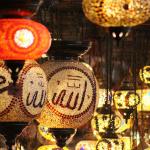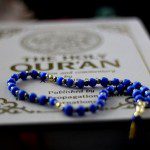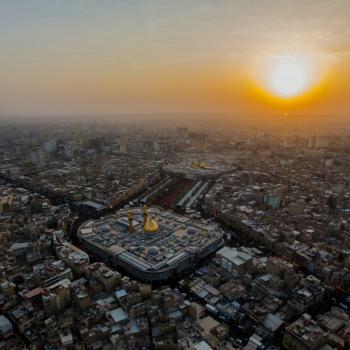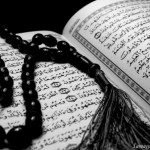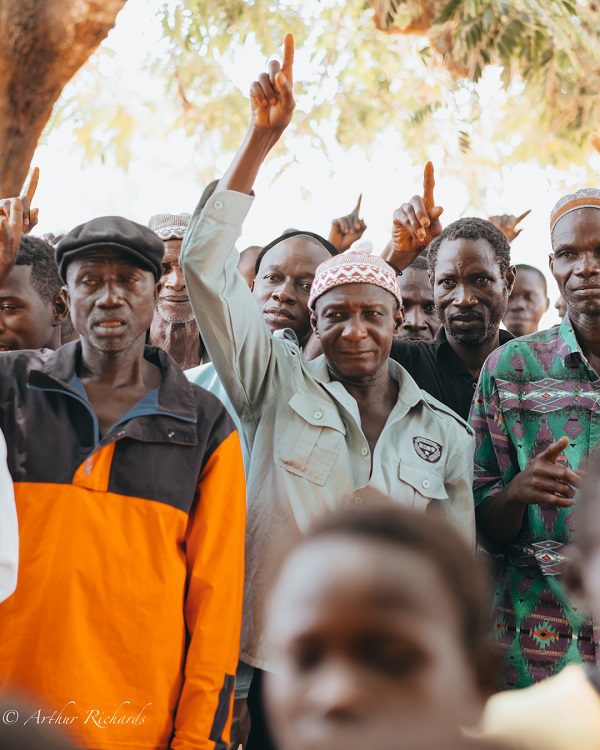
This is Day 11 of the 2018 #30Days30Writers Ramadan series.
Bunde had an aura about him. When he stood, he would tower over others. When he spoke, he was clear and commanded attention. It didn’t take long for my team and I to realize that the man sitting and watching us was one of the village elders, a man who had been declared a judge by his people.
Days before, he and hundreds from his village in Guinea Bissau, West Africa proclaimed the declaration that There is no god except God and the Prophet Muhammad is His messenger. He understood the message and believed in these words but wanted to see how the actions of these foreign teachers would measure up to this religion he and his people had now accepted.
That night our Ameer gave a talk in the masjid after the village’s first communal prayer together as Muslims. He had chosen to speak on the Prophet Abraham (God’s peace and blessings upon him) and on the logical conclusions that he was able to arrive at when searching for the truth of his Lord.
And thus did We show Abraham the realm of the heavens and the earth that he would be among the certain [in faith]
So when the night covered him [with darkness], he saw a star. He said, “This is my lord.” But when it set, he said, “I like not those that disappear.”
And when he saw the moon rising, he said, “This is my lord.” But when it set, he said, “Unless my Lord guides me, I will surely be among the people gone astray.”
And when he saw the sun rising, he said, “This is my lord; this is greater.” But when it set, he said, “O my people, indeed I am free from what you associate with Allah. — (Surah Al An’am, Ayah 76-78)
I sat next to the Ameer as he spoke and watched the faces of the village members, especially that of Bunde. His eyes never once hinted that an abundance of emotions was waiting to burst out from behind his eyelids and sprint from his lips; he held it all back. Or maybe he truly had nothing to say at that point due to the vast amount of thoughts racing around his brain.
We came to the point of history where Abraham now took it upon himself to show his people the truth behind the false gods they worshipped:
So he made them into fragments, except a large one among them, that they might return to it [and question]. (Surah Al Anbiya, Ayah 58)
I began to see unrest, and uneasiness crept through the room and tickled the spines of everyone as they shifted from side to side. But, he kept going, and I kept sweating, wondering when the outburst of disdain and rage would come from one of the village elders reminding us that culture and traditions reigned supreme in a land still untouched by 4G internet and Tesla innovations.
The Ameer came to the part in the story where the Prophet Abraham was now to be punished and thrown into a fire so large that some scholars mention he had to be catapulted into it. It was at that point that God ordered a fire that customarily would have scorched him alive to become cool in the face of ignorant tyrants. And, like the peace that God ordered upon the fire that quelled its heat, so too could I see a peace descend on the hearts of all the listeners of these ayat. It was Bunde who spoke first:
“I have idols, my children have idols, my wife has idols. Whenever we become sick we go to the local soothsayer and she tells us how many cows or chickens to sacrifice for our idols. When a birth or death happens, again, we sacrifice in the name of these idols. They have been passed down generation to generation just like the people of Abraham argued and told him.
They were a people that were just as we are today, but I must tell you that I have never found benefit in them. They have never done anything for me or my people, and so I want to be like Abraham and that is why I have accepted Islam and why I want my children to enter this faith. What do we do now with these idols now that we know the truth?”
I share this story not only because it was a powerful one, but because of its simplicity. This one historical moment in history is only one of many historical stories relayed to us through the words of God. All of them share the same simplicity, all of them share the same ability to profoundly impact a people despite the people’s variance in education, socio-economic status, etc.
And, most importantly, all of them are the Divinely revealed words of God revealed upon the Angel Gabriel onto his blessed servant, the Prophet Muhammad (God’s peace and blessings upon him) in the month that we are now in — Ramadan. This simplicity is at the core of the message of Islam, a message that is so primordial that throughout history it has never changed.
There is no god except God and Muhammad is His messenger. This message is for all of us in this blessed month, a message to re-evaluate, to re-inculcate and to re-etch onto the hearts that in every moment are sustained by the Divine.
May God accept our fasting, our prayers, our tears and our smiles as we aim to gain consciousness and proximity to the One who gave us intellect, the One who is not limited by time and space, and the One who will answer His servants call.
Ameen.


